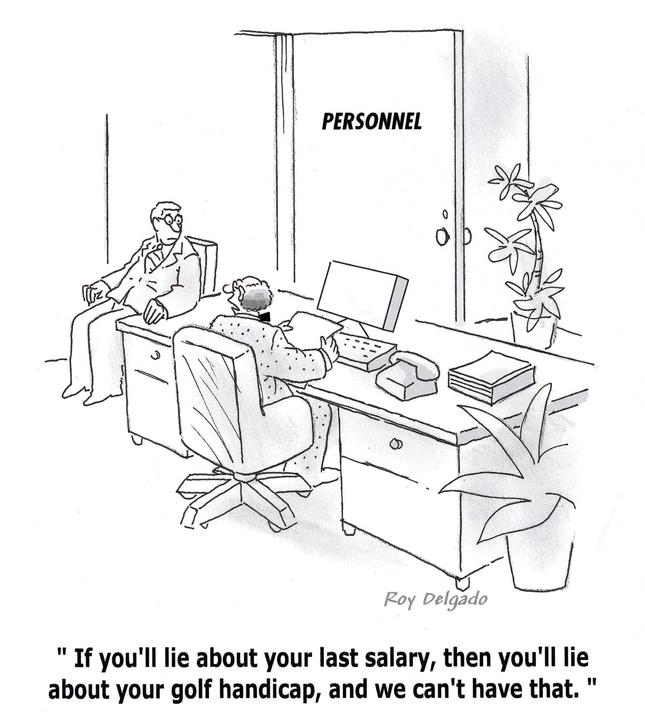There probably is not another aspect of the game of golf that is as controversial as the golf handicap.
A golf handicap is basically a numerical measure of a golfer’s potential playing ability, derived from a ridiculously complicated mathematical formula that, for the purposes of quick explanation, is what a golfer may on average shoot over par. If you shoot an average score of 92 on a par 72 course, you will be close to a 20 handicap. It is the golf handicapping system that allows golfers of any skill to compete against each other fairly.
Since a golf handicap is self-reported, like income taxes, people regularly lie about them. When you “hang” a golf handicap (get one), you are making a commitment to play by the rules of the game of golf, which are difficult to understand, sometimes hard to play by and probably cause more arguments per capita than religion and politics combined. Traditionally, handicaps have been associated with private club membership, but not anymore. The Internet has provided many outlets where you can get one, but the USGA (United States Golf Association) only recognizes handicaps associated with golf clubs. This will cost you anywhere from $25 to $40. If you play golf regularly, you should have a golf handicap.
Having a handicap will allow you to honestly measure the progress of your golf game, allow you to enter tournaments, join leagues and play a host of non-traditional golf games that can be really fun. I frequently play a Stableford format with a group of golfers for which I need my handicap. A Stableford format awards points for performance on each hole, and each golfer’s potential to earn points is dictated by his handicap. It is extremely popular overseas. In small doses, wagering on golf is extremely fun, and a handicap makes that possible.
Some consider themselves not good enough for a handicap. If you regularly shoot over 120, perhaps you have an acceptable argument there. One thing that may persuade you to get a handicap is to realize that golfers who are better than you are more likely to play with you if you have one — and you are more likely to get better at the game by playing with golfers that are better than you. Not only does it make it possible for them to liven up the round by competing with you, but it displays a respect for the game that will certainly be noted. Non-handicappers will generally not follow the rules, which any serious golfer will find less interesting than someone who does.
The golfer that wants to have better scores before he hangs a handicap is no different than the person who wants to get in shape before they join the gym or someone who insists they want to lose weight but somehow never buys a scale. Knowledge is power. You have to define a starting point to measure anything. When someone says that they just play golf to enjoy themselves so they don’t want to have a handicap or play by strict rules, I can see that point of view and respect it. When these same people throw clubs, scream, berate golf personnel, brag about golf scores or want to bet on their games, I run for cover. It seems unbelievable to me that the same person that is willing to spend two grand on clubs and accessories will turn around and claim to only play for fun or say that hanging a handicap would be too expensive.
There are some legitimate criticisms of the golf handicap system. A frequent one is that golfers who only play the same course will have lower handicaps. Well, who cares if someone has an artificially low handicap? The only time you will meet this person is at an event outside his club, which you are more likely to win with an accurate handicap. Another common complaint is that the system does not account for bad weather. Yes, it does. In coming up with an “average” of your scores the lowest 10 out of 20 scores are used. You could have 10 scores more than 150, but if the other 10 average at 85, you will be close to a 13 handicap. If you play in weather that is so bad that you score that poorly half the time, you should quit the game or move anyway.
The most common argument against the handicap system is that people are not honest, and that they do not follow the rules. This complaint is surely true enough some times, but I feel like the same complaint can be made about life. Yes, it can be frustrating to know that people cheat sometimes, and not be able to do anything about it. Losing a local tournament to some sandbagging loudmouth or cheater may not be ideal, but you will have ideals.
It truly is how you play the game, not whether you win or lose, that matters. This saying has never been truer than when applied to the game of golf, because, like life, it is a game that you can never really win anyway. You may be able to tell if you are doing well lately, or if you have some work to do, but the only way you will ever know this is if you start with a benchmark by which you can measure your behavior. In golf, this is your handicap. Go get one.
Wally Greeves is the golf columnist for the Georgetowner and is a member of the Golf Writers Association of America and can be reached at Wally@wandergolf.com.


